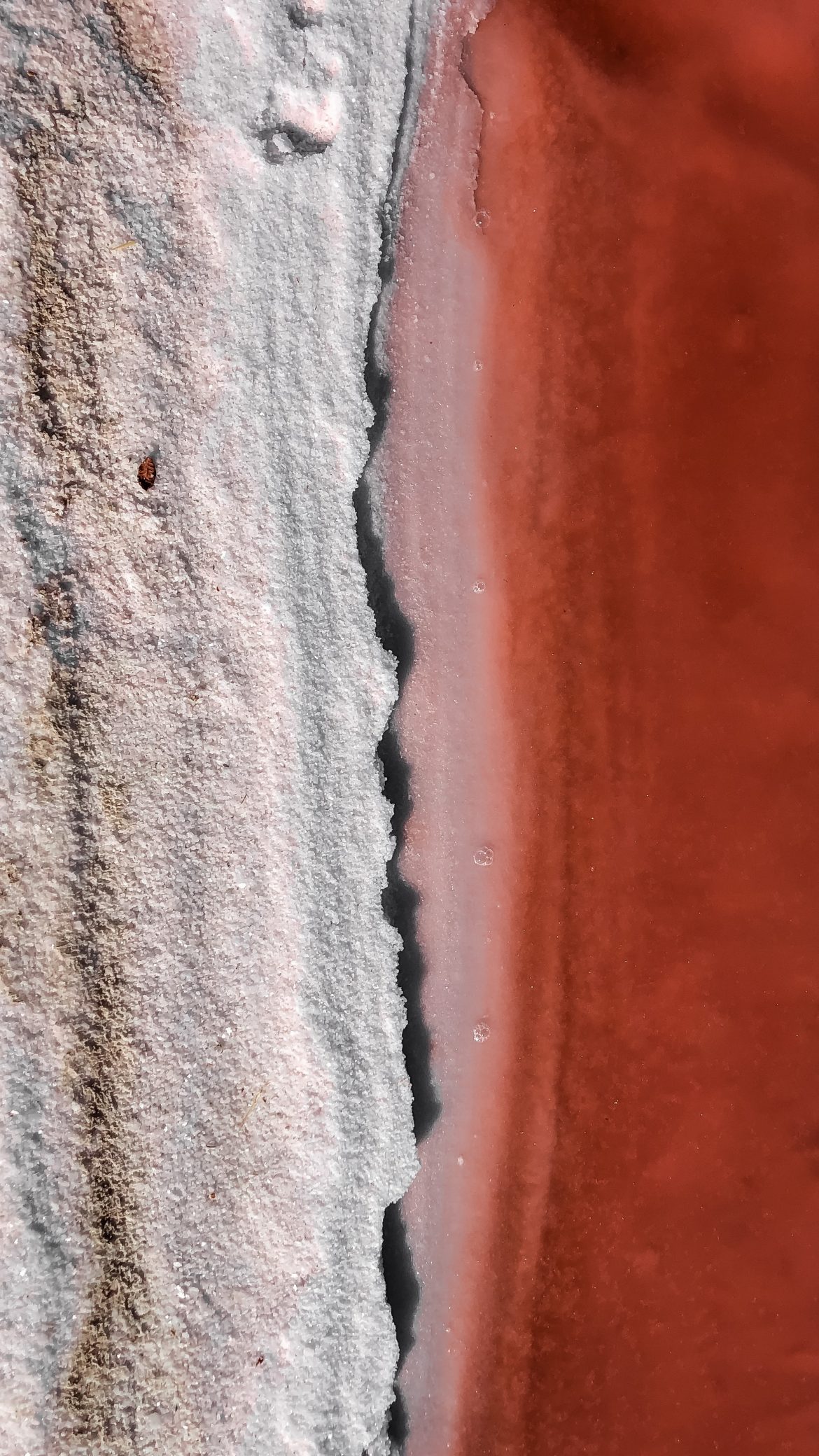Transitions mean change. If we didn’t know that before, we have certainly learned it in the last couple of years. Transitions are always challenging, sometimes painful – always transformational. Unfortunately, we often want to hold onto the familiar and the comforting even when we suspect that is not possible.
Change is usually marked by deliberate steps we take that say life is going to be different. Jesus marked his move into adulthood (at the age of 12) by staying behind in Jerusalem to ask questions of the religious leaders (Luke 2:46). He inaugurated his ministry with 40 days in the wilderness (Luke 4:2) and he marked his transition towards the cross by a deliberate and determined walk towards Jerusalem (Luke 9:51). Jesus knew when it was time to say life is going to be different in the future and he knew how to prepare for those changes.
We are all in transition. In the church calendar out of Eastertide and Pentecost and into Ordinary time, in the seasonal calendar out of spring into summer or autumn into winter if you live in the southern hemisphere. Many are also transitioning into new stages of life. We are less impacted by COVID but more by the ravages of climate and economic changes. Some are leaving school to start new jobs. Others are moving across the country or even across the world.
Whatever the changes we face transitions are never easy. So how do we create healthy boundaries in the midst of these changes?
Transitions require us to identify the stability points that will not change.
The place to start as we face transition is not with what is changing but what will not change. What are the stability points that keep me strong and anchor my soul throughout transition times?
Part of what I asked myself over the last few weeks is “what are the practices that should never change?” My morning rituals of quiet reflection and meditation are important rituals that remain secure in spite of the ways my understanding of God have changed. The shape they take may change, but this morning time laid aside each day for connecting to God is a special time, a healthy practice that is rooted in God’s love and trustworthiness rather than in a specific interpretation of the scriptures.
Interestingly as I thought about this last week, I realized that the true anchor is my morning cup of tea. Recently I was told I needed to cut caffeine out of my diet. At first I panicked. Then I realized there are alternatives to Yorkshire gold so this week my morning cuppa will be rooibos tea instead. The ritual that formed a boundary to my morning and framed my day will not change. The nature of it will.
Transitions require deliberate steps towards change.
It is easy to settle into and cling to the familiar patterns of the past and not consciously work towards the changes we suspect will be necessary in the future. Routines provide comfort for us and when they change we are often disoriented and destabilized. We don’t know what we should do in the midst of the chaotic change around us. It is easier to look back than to look forward. Maintaining flexibility in our expectations and deliberately working towards change is a very important and at times painful journey.
Reframe negative experiences as something positive.
One powerful practice that establishes healthy boundaries in the midst of change is to reframe negative experiences as something more positive and then find meaning in it. In Landmarks, Robert McFarlane explains that when the moorland on the island of Lewis in Scotland was in danger of being converted into a major wind farm that would have permanently destroyed the countryside, the residents realized they faced a challenge. They needed to re-enchant peoples’ perception of the moor so that it had intrinsic value. They mapped out the moor and its walking paths, they gathered poetry and songs. They heightened people’s awareness of the descriptive language of plants and landscape. They gave it value in the sight not just of the islanders but of the whole country. And the moorland was saved.
I wonder if we need to do something similar for the last 3 years. Look back over your journal or the blogs you enjoy. Gather the writings that most inspire you about people’s experiences during that time – the outpourings of generosity and compassion and neighbourliness. The rediscovery of nature walks and gardening and the delight of slowing down. Reframe your own experiences of that time in positive language. What boundaries were established during that time that you know need to be saved?
Transitions require the creation of new boundaries and new rituals.
When my husband and I stepped down from the leadership of our small not-for-profit, we embarked on a major remodel in our house. As part of that remodel I moved the desk in my office so that it was no longer the focal point. My space became first a sacred space and then a work space. It was part of the establishing of new boundaries and new rituals, a new environment for me that encouraged me to establish new practices and new priorities.
Then we embarked on a major trip for our 25th wedding anniversary, travelling in Europe, visiting some of our favourite people and places. We set boundaries around that said “this is finished”. We both came back refreshed, renewed and ready to start on new things. Obviously this was pre-COVID time but the principles still apply. Rearrange your office in a way that communicates “There is life beyond Zoom!” Go on a trip – maybe just a local air B&B, something that communicates – “the past is past, I am open to a new future.”
Transitions require space and time for dreaming new dreams.
Transition time is busy time. It is easy to fill our days without really thinking about the future. Sometimes the dreams that moved us towards transition get lost in the process.
Take to time to breathe, to sit still and reflect. Clear your calendar for a season, go on retreat, take time to allow God to renew and refocus yourself. Ask yourself: What space is necessary for dreaming new dreams for the future?
One of the ways I use my mediation gardens that I talk about in Digging Deeper: The Art of Contemplative Gardening, is to mark transitions. They often provide a framework for dreaming. I dream as I plan my new garden and as I create it. A wonderful practices that provides healthy boundaries for my transition.
Transitions require companions for the journey.
As part of my current transition, I recruited a spiritual director and life coach to help me set healthy boundaries for the time ahead. I also read a lot of books on discernment and solicited the counsel of a broad array of friends and colleagues. Lots of ideas raced round in my head but not all of them will bear fruit. I need discernment and for that I need help. We all need companions who can walk beside us, as well as those who can guide and help direct us into new seasons of life. Who are the companions and advisors that could help you through transition?
Transitions cannot be rushed.
When I go through major transition seasons I always hope for a brief, sometimes painful phase and then anticipate everything will settle down without too much hassle. However I know from experience that transitions usually take months if not years. It is easy to get impatient, to try to give birth prematurely. This is not a season to hurry through. The season between conception and birth is essential and even after that there is a long and sometimes slow season of growth until maturity. Ask yourself: How have you tried to hurry the transition process and attempted to give birth prematurely?
What is your response?
We are all in transition time, Sit and reflect on the expected changes in your own life. What is God saying to you at this time that could help you create healthy boundaries to see you through the days ahead?
 We all need the Wholeness of God…this resource includes reflections and activities for coping and thriving during the COVID-19 challenges in search of shalom as well as hope for restoration during and after this period of social distancing.
We all need the Wholeness of God…this resource includes reflections and activities for coping and thriving during the COVID-19 challenges in search of shalom as well as hope for restoration during and after this period of social distancing.


4 comments
Todays blog made me think of how we prepare for the last transition of our short lives – our death. St Benedict advised that during the transition of each moment to the next in our whole life we should “Keep death always before your eyes…” Rule of St. Benedict 4.47 – what does this mean for you? For me, I try to ask myself what I am carrying with me and what am I leaving behind.
Interestingly this is one of the boundaries Tom and I are grappling with at the moment – making lists of things we need to do in preparation for that final frontier
Christine, this post is timely for me in several ways and I so appreciate the wisdom you’ve articulated in it. I will mull on each of the questions you posed over the next few weeks (and months, no doubt). Thank you!
So glad it is helpful. I continue to mull over my questions as I know how easy it is to forget the boundaries we decide on